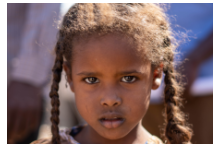Send help to Sudan now / Venez en aide au Soudan
by CANADIAN UNICEF COMMITTEE COMITE UNICEF CANADAAfter more than 15 months of war in Sudan, a catastrophic combination of conflict, displacement and humanitarian access constraints has resulted in famine in a camp sheltering hundreds of thousands of displaced people in Sudan’s North Darfur Region.
The Famine Review Committee(FRC)’s conclusion that there is famine in Zamzam camp, is the first determination of famine by the Committee in more than 7 years, and only the third time a famine determination has been made since the monitoring system was created 20 years ago. The FRC warns that other parts of Sudan risk famine if concerted action is not taken.
The famine announcement confirms the fears of the humanitarian community and follows an IPC analysis in June showing a dramatic decline in food and nutrition security; with 755,000 people facing catastrophic conditions.
UNICEF and the UN World Food Programme (WFP) have been warning of the escalating risk to the people of Sudan, particularly children, if urgent aid cannot be delivered to communities trapped in conflict hotspots like Darfur, Khartoum, Kordofan and Al Jazirah. The situation remains critical across the whole country, with an estimated 730,000 children projected to suffer severe acute malnutrition (SAM) this year, the most life-threatening form of malnutrition.
A determination of famine means that people, including children, have already started dying of hunger and related conditions including malnutrition and infection. Unlike the Darfur crisis of twenty years ago, this conflict-fuelled hunger crisis spans the whole country including the capital Khartoum and Jazirah State, previously Sudan’s breadbasket.
Severely restricted humanitarian access is one of the main drivers of the famine conditions in Zamzam. While UNICEF was able to deliver enough supplies of life-saving Ready-to-Use Therapeutic Food (RUTF) to treat approximately 4,000 severely acutely malnourished children to El Fasher in July, including an allocation for Zamzam camp, the continued lack of sustained, safe access means the needs remain huge and continued ability to deliver humanitarian supplies is unpredictable.
“We urgently need a massive expansion of humanitarian access so we can halt the famine that has taken hold in North Darfur and stop it sweeping across Sudan. The warring parties must lift all restrictions and open new supply routes across borders, and across conflict lines, so relief agencies can get to cut-off communities with desperately needed food and other humanitarian aid,” said WFP Executive Director Cindy McCain. “I also call on the international community to act now to secure a ceasefire in this brutal conflict and end Sudan’s slide into famine. It is the only way we will reverse a humanitarian catastrophe that is destabilizing this entire region of Africa.”
“Today’s news confirms some of our worst fears that famine is occurring in parts of Sudan and is inflicting unimaginable suffering on children and families who are already reeling from the impact of a horrific war,” said UNICEF Executive Director Catherine Russell. “This famine is fully man-made. We again call on all the parties to provide the humanitarian system with unimpeded and safe access to children and families in need. We must be able to use all routes, across lines of conflict and borders. Sudan’s children cannot wait. They need protection, basic services and most of all, a ceasefire and peace.”
UNICEF and WFP continue to call on all parties to guarantee safe unhindered and sustained humanitarian access, to allow the humanitarian response to be further expanded and to allow the agencies to deliver at speed. The agencies also urge the international community to intensify their financial support for humanitarian efforts and use every diplomatic tool at their disposal to bring about an immediate ceasefire WFP and UNICEF have mobilised a large-scale humanitarian response with local and international partners, inside Sudan and in neighbouring countries where more than 2 million Sudanese have fled to safety.
///
Faites un don dès aujourd’hui pour permettre à l’UNICEF d’aider des millions d’enfants et leurs familles touchés par le conflit au Soudan.
L’escalade de la violence au Soudan met en danger des millions d’enfants et leurs familles.
Des enfants ont été tués et d’autres, blessés. Bon nombre sont pris sous les tirs croisés, et de nombreux autres sont contraints de fuir leur domicile pour trouver refuge dans les pays voisins.
Le Soudan affiche l’un des taux de malnutrition infantile les plus élevés au monde. On estime que quelque 50 000 enfants souffrant de malnutrition sévère sont désormais privés de soins essentiels à leur survie en raison du conflit. Toutes les écoles sont fermées et de nombreux enfants n’ont plus accès à des espaces sûrs ou à une éducation.
L’UNICEF réclame un cessez-le-feu afin que les travailleuses et les travailleurs humanitaires puissent travailler en sécurité à procurer aux enfants et aux familles les soins de santé ainsi que les services de nutrition, de protection et d’éducation requis de toute urgence.
Avec votre soutien, nous pouvons offrir une aide et des services essentiels aux enfants et aux familles touchés par le conflit au Soudan.
Faites un don dès maintenant pour aider à procurer de toute urgence une aide essentielle à la survie des enfants et des familles au Soudan.
Dans l’éventualité où les dons reçus par l’UNICEF surpasseraient les besoins liés à cette crise, les dons supplémentaires serviront à soutenir notre travail pour les enfants dans le monde là où les besoins sont les plus grands.
